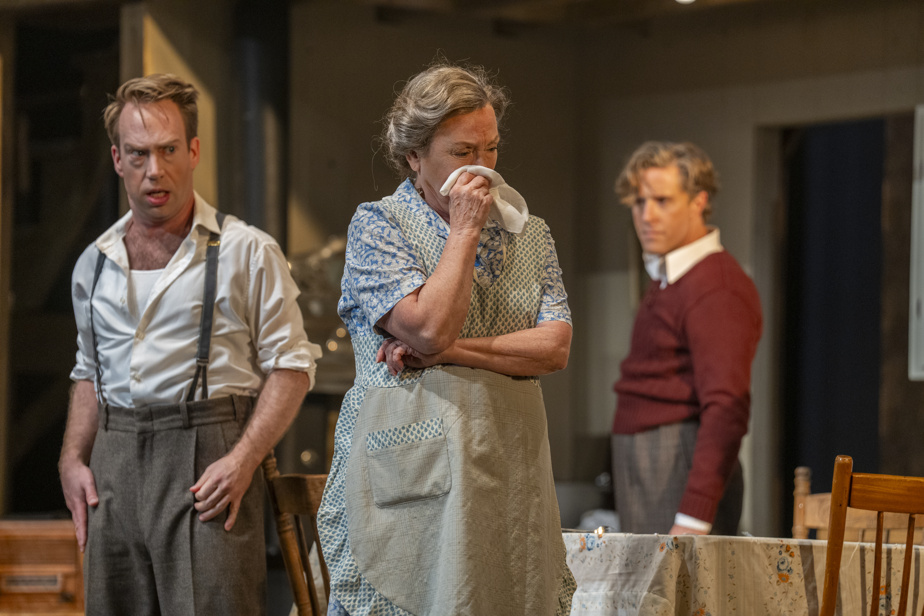If an extraterrestrial landed in Quebec in 2023, we would make him see (or read) Les Plouffe, so that he understands the foundations of modern Quebec society.
Both a realistic portrait of an era and a magnifying mirror of its broken dreams, Les Plouffe accurately depicts the solidarity and betrayal around the family clan. On a small and large scale. The work of Roger Lemelin illustrates the desire for emancipation and freedom of a people “without culture”, “born for a small bread”, driven by their immense thirst for heroism. Like an epic that plunges us deep into the soul of a people.
In addition to featuring touching, archetypal characters, Les Plouffe is a summary of the great struggles of French Canadians from the end of the Great Depression to the beginnings of the Second World War: the first workers’ unions; the affirmation of Quebec nationalism; clergy domination; cultural emancipation, etc. Roger Lemelin paved the way for Gélinas, Dubé and Tremblay.
It’s done. With this excellent adaptation by Isabelle Hubert (based on the book and the film screenplay by Gilles Carle), in an ingenious direction by Maryse Lapierre, with a brilliant cast! This show is remarkable and the story has not aged a bit.
The scene opens in 1938, in the Saint-Sauveur district, in Quebec. As Europe prepares to enter war, the Plouffe family is torn apart… in a different way. Guillaume, the youngest, dreams of becoming an athlete in the United States. Ovide is torn between his faith, opera and his love for Rita Toulouse. Napoleon lives on hope and cycling. Cécile, the eldest, clandestinely loves a married man. Théophile, the father, fights hypocrisy; while his wife, Joséphine, tries to preserve the family nest.
Maryse Lapierre’s production crystallizes the social division of the National Capital in the 1930s, in a setting representing the wooden stairs perched on the cliff of Cap Diamant. And this steep slope, far from gentle, that the Catholic working class will have to climb to escape their condition and realize their dreams.
The entire cast is remarkable! Notable is Jean-Michel Girouard’s poignant performance as Napoléon Plouffe; the nuanced and fair performance of Frédérique Bradet as Cécile Plouffe; the very sensitive Ovide by Renaud Lacelle-Bourdon; Roger Léger and Marie-Ginette Guay in the role of parents who ensure, as best they can, the balance of their family. Maxime Beauregard-Martin plays with finesse the young journalist Denis Boucher, Lemelin’s alter ego. Rarely have we seen such a well-directed cast of 14 performers on a large set.
There are several great staging ideas in this 2 hour 10 minute show with no downtime, including the use of musicians and singers during musical interludes; the part of irons in two places; Ovide’s breakup letter to Rita Toulouse which she transforms into a baseball to throw to Stan Labrie.
Among all these staging ideas, there is that of isolating Maman Plouffe at times in her kitchen, sitting at the table, alone and terribly pensive… Marie-Ginette Guay, moving, makes us hear “the din of silence” of the mothers of families. These women who also gave birth to today’s Quebec.
